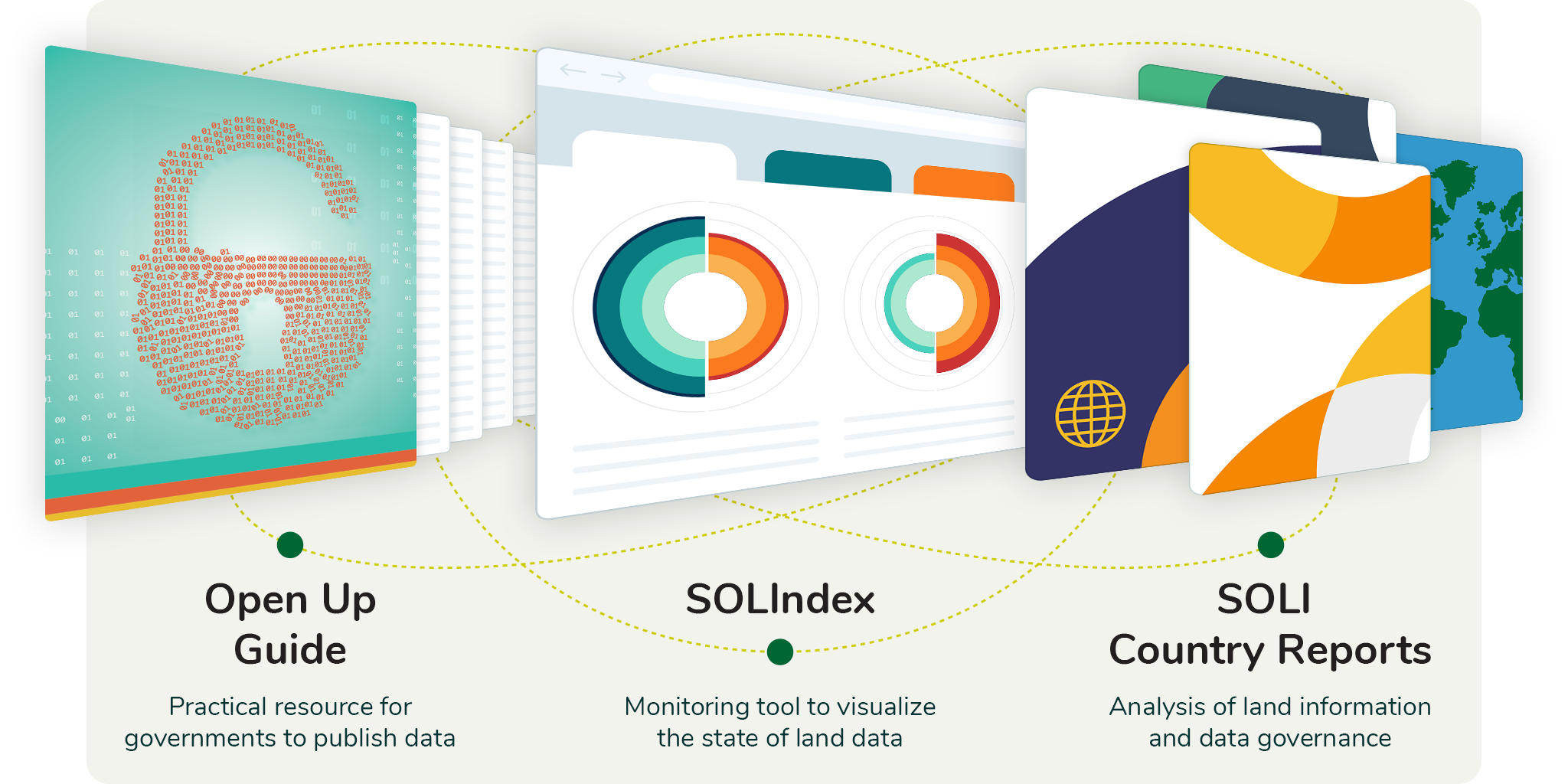
OPEN is one of the Land Portal’s three strategic pillars (INFORM | OPEN | DEBATE). The State of Land Information program encapsulates the Land Portal’s work in opening up land data and information for public access.
Open Up Guide for Land Governance
Governments rarely publish their primary land tenure, use, value, and development data in open and reusable formats. Yet land is a critical global asset, and land governance — the exercise of political, economic, and administrative authority over land — should include processes for citizens to participate. Publishing open data on land governance has known barriers. In some cases, reliable, formal land tenure data does not exist at all or is not in digital form. Metadata is inadequate. Governments are hesitant to publish data that may include sensitive personal information.
The Open Up Guide for Land Governance is a practical resource to be used by governments to publish land-related data to improve data quality, availability, accessibility and use for improved citizen engagement, decision making and innovation.
Read more about the Open Up Guide: https://landportal.org/open-up-guide
SOLIndex Data Dashboard
The SOLIndex is a new indicator and diagnostic tool to make land related information more actionable and to complement existing land and data governance systems. The SOLIndex is based on modern land administration theory in support of sustainable development. The SOLIndex assesses the completeness and openness of land data by understanding the availability of public sector information. Four core data categories are identified: tenure data, land use data, land value data, and land development data. The SOLIndex examines key questions such as how much land data is online, free, updated timely, accompanied by metadata, downloadable, and openly licensed.
Visit the dashboard here: https://solindex.landportal.org/
SOLI Country Reports
The State of Land Information (SOLI) reports seek to provide a thorough overview of publicly available data and information on key land issues in a country. The aim of the research is to uncover the many different sources of land data and information at the country-level and help to identify data and information gaps, with a view to establishing a baseline for targeted interventions to improve the information ecosystem. The country reports enriches the SOLIndex data dashboard by providing more in-depth country analysis and complements Open Up Guide initiatives.
In 2019, we kicked off SOLI research in Tanzania, South Sudan, Uganda, and Kenya. We now have 15 full-length SOLI country reports available.
Read the SOLI Country Reports: https://landportal.org/state-of-land-information-country-reports
Related content:
Top 3 Challenges in Opening Up Land Data, excerpt from the Revised Open Up Guide to Land Governance
Land Governance Data: 1st Stakeholder Meeting Dakar, Senegal
Piloting the Open Up Guide for Land Governance in Senegal
The stakeholder workshop, which will take place with select stakeholders in Dakar, will introduce the first phase of the "Open Up Guide for Land Governance" project in Senegal; identify networks and stakeholders in the open land data sector; and increase awareness regarding open data in the land sector.
Open Up Guide for Land Governance, Version 2.0 (following public comments)
The Open Up Guide on Land Governance is a resource aimed to be used by governments from developing countries to collect and release land-related data to improve data quality, availability, accessibility and use for improved citizen engagement, decision making and innovation. It sets out:
-
Key datasets for land management accountability, and how they should be collected, stored, shared and published for improving land governance and transparency;



